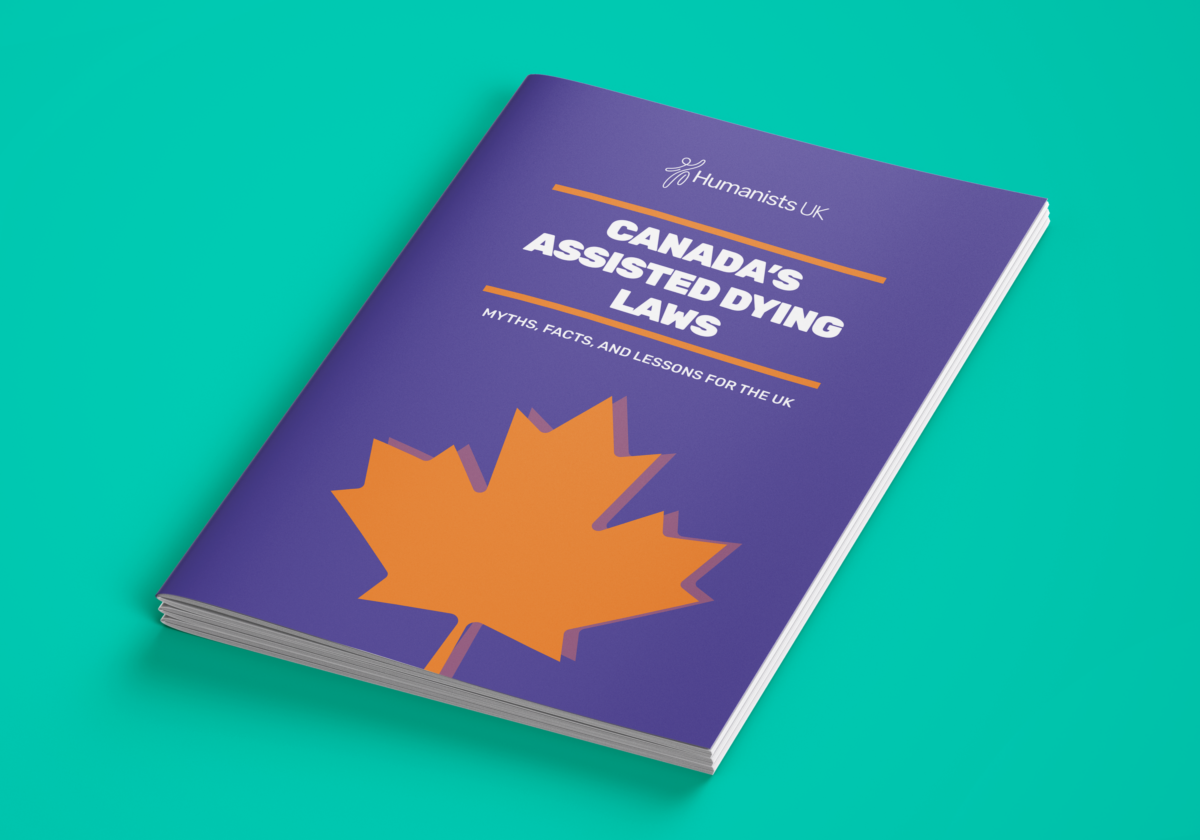As the assisted dying inquiry in Parliament comes to an end, Humanists UK Assisted Dying Campaigner Nathan Stillwell reviews what was said, what was learned, and what remaining issues the committee needs to address.
Last week, the House of Commons’ assisted dying inquiry held its final oral evidence session
Here’s what happened in the inquiry, including all the important conclusions. The Health and Social Care Committee, a cross-party select committee led by Conservative MP Steve Brine, launched the inquiry in January. Its stated aim is to explore the arguments across the debate and ‘to consider the role of medical professionals, access to palliative care, what protections would be needed to safeguard against coercion and the criteria for eligibility to access assisted dying’. A key aspect of the inquiry was what could be learnt from international experiences.
Humanists UK expressed some concern about the composition of the Committee as seven of the 11 members have previously opposed assisted dying, with only three being known to be supportive. The Committee is also much more religious than the public at large: only one of the 11 MPs (9%) affirmed upon entry into Parliament (i.e. made a non-religious oath), with the other ten swearing a Christian oath. This compares with 24% of all MPs having affirmed. The 2019 British Social Attitudes Survey recorded that 53% of British adults belong to no religion.
What did they do?
The public was invited to share their views in a survey, which received 63,000 responses. The Committee has only released a partial snapshot of the results of the survey, saying for example that 94% of respondents who said that they broadly disagree with the current law in England and Wales felt that ‘reducing suffering’ was a key factor in their view.
Humanists UK, along with over 300 organisations, experts, and individuals submitted written evidence as well.
The Committee also held two closed-door roundtable discussions with people who are affected by the current law. We understand this to mean quite a range of individuals, from terminally ill people to nurses. These discussions have been anonymised, transcribed and will feed into the report.
The Committee also hosted five evidence sessions, where a range of domestic and international experts give evidence live in front of the Committee, who were able to pose questions. However, the evidence sessions did not include healthcare professionals outside palliative care, disabled people, people with lived experience of assisted dying or healthcare professionals are part of the assisted dying process abroad.
What did they learn?

Assisted dying legislation improves other end-of-life care, such as palliative care
Contrary to some assertions, the oral evidence sessions showed that abroad, the introduction of assisted dying legislation led to improvements in general end-of-life care.
In the oral evidence session that focused on jurisdictions that allow assisted dying for people who are incurably, intolerably suffering, Professor James Downar, Head of the Division of Palliative Care at the University of Ottawa, explained that since the introduction of an assisted dying law in 2016, Canada had seen ‘the strongest growth of palliative care in its history.’ Professor Jan Bernheim and Professor Rutger Jan van der Gaag said that legislative change in Belgium and the Netherlands had been intrinsically linked with palliative care and they now boast some of the best palliative care provisions in Europe.
In written evidence submitted to the committee, Palliative Care Australia – the peak palliative care organisation in Australia – outlined how it had initially opposed assisted dying legislation. But after extensive research it came to the conclusion resoundingly that assisted dying legislation leads to improved palliative care.
Every jurisdiction that introduces assisted dying legislation wants to keep it

In every single one of the 27 international jurisdictions that have legalised assisted dying in some form, the service works and remains popular. Over 350 million people across the world have access to assisted dying.
Professor Bernheim explained that Belgium and the Netherlands have the most scrutinised and studied legislation in the world, and public support remains strong, as does public confidence in the medical system.
Professor Roderick MacLeod from New Zealand, who opposes the country’s law, conceded that there is no appetite to turn back the clock.
When asked what would happen if assisted dying was prohibited in Switzerland Dr Georg Bosshard, a practising Swiss geriatrician, said it would be a revolution. He continued:
‘It is very important for Swiss people to have that freedom at the end of life. The right to die society EXIT has more than 100,000 members. It is a public rights issue at the forefront. It is really important for Swiss people to have that right.’
There is no evidence of coercion
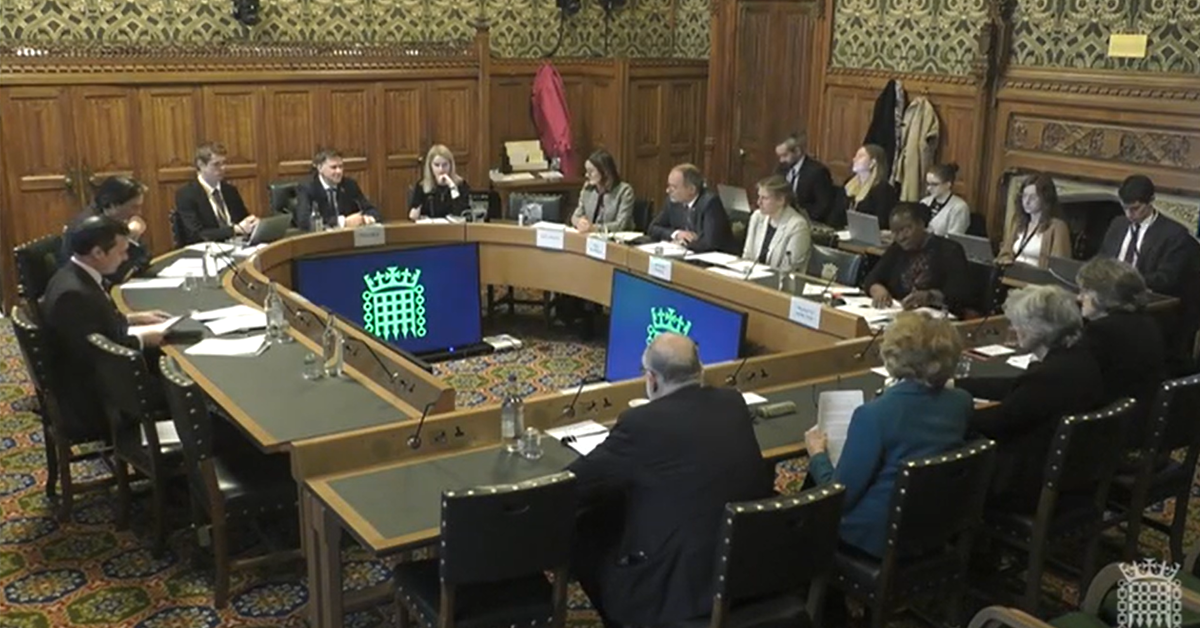
Some people fear that if legalised, some may pressure others to have an assisted death.
In the second panel, which consisted of academics that have studied assisted dying, Dr Naomi Richards, Professor Nancy Preston, and Dr Alexandra Mullock were clear that in the international jurisdictions that they have studied throughout their extensive research and careers, there is no evidence that people are forced against their wills to have assisted deaths.
Silvan Luley, from the Swiss assisted dying centre Dignitas, explained that every single assisted death in Switzerland is investigated by the police and the coroner does an examination, and he wasn’t aware of a single case of coercion. Most international jurisdictions have some sort of reviewing process to check processes and conditions have been met.
Assisted dying legislation brings dignity
Switzerland has had an assisted dying law for nearly 80 years. The US state of Oregon, Belgium, and the Netherlands have had legislation for over two decades. In all of these jurisdictions, people are given the opportunity to die on their terms, with dignity.
Professor Bernheim explained that Belgium and the Netherlands are where end-of-life issues have been studied the most intensely. He highlighted that since the law was introduced there has been ‘much more control, much more scrutiny, much more awareness, much more compassion’.
Legalising assisted dying improves conversations around death
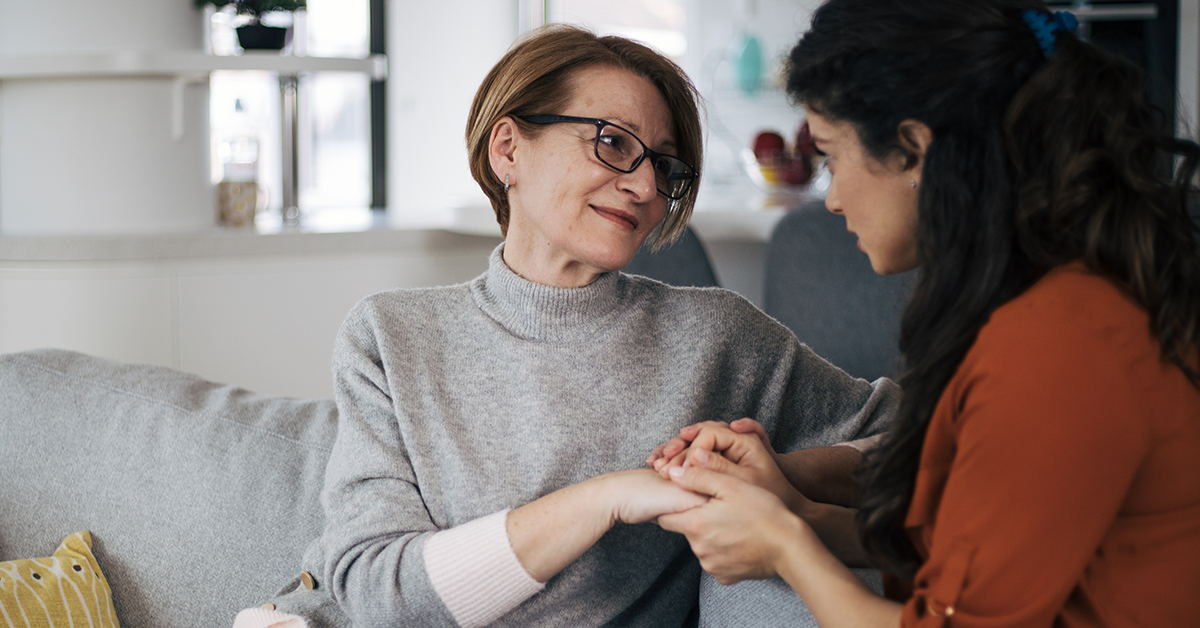
Most MPs on the Committee, as well as people who gave evidence, agreed that conversations around death and dying are incredibly important.
In written evidence to the Committee, Professor Bronwyn Parry, Dean of an Australian University, and Dr Sally Eales, PhD at the University of Sheffield concluded after research that ‘The current ban on assisted dying prevents dying people, their loved ones and doctors from having open and honest conversations about dying.’
A citizens’ jury could be the answer

Citizens’ juries, otherwise known as citizens’ assemblies or citizens’ conventions, is when a group of individuals who are representative of the population are brought together to have an honest conversation and find common ground on an issue that matters. Citizens’ juries on assisted dying have happened in both France and Jersey.
The second evidence session included Dr Mullock, an expert advisor to the jury in Jersey. She supported members of the jury to help them clarify and examine the evidence they received. She told the Committee: ‘I think it is a very good process and a really good way to have democratic participation.’
The survey run by the inquiry posed the question if a citizens’ assembly would be helpful, but the Committee has not revealed the number of respondents who agreed that it would be.
Did they approach the inquiry in the right way?

At the start of the inquiry, Humanists UK revealed that the Committee is considerably more religious than the public. Ten of the eleven committee members swore a Christian oath upon entering Parliament. Four committee members have voted against assisted dying in the past and at least three of the members have also voted against abortion rights, a stark contrast to the 86% of the public who support women’s right to an abortion.
It’s possible that many of the Committee members approached the inquiry already disagreeing with assisted dying.
The Committee missed some key components of the debate
It’s understandable that the Committee would be unable to interview every expert, but a complete lack of campaigning organisations, disabled people, practising doctors outside of palliative care, surgeons, nurses, and social care workers draws big holes in how the inquiry would work. As the inquiry was run by the Health and Social Care Committee, more emphasis on these groups would have been expected.
While the Committee did speak to a range of international experts, not a single healthcare professional who has assessed patients for an assisted death was called to give oral evidence. Doctors who administer end-of-life drugs internationally were omitted too.
One of the biggest changes since the 2015 House of Commons vote to uphold the ban on assisted dying is that the British Medical Association and all bar one Royal College have changed their position to one of neutrality. A survey by the Royal College of Surgeons recently revealed that six in ten surgeons personally support assisted dying. The British Medical Association dropped its opposition to assisted dying in 2021, after 59% of doctors said they believe adults with physical conditions causing intolerable suffering should be allowed help to die.
There was too much focus on issues unlikely to affect the UK
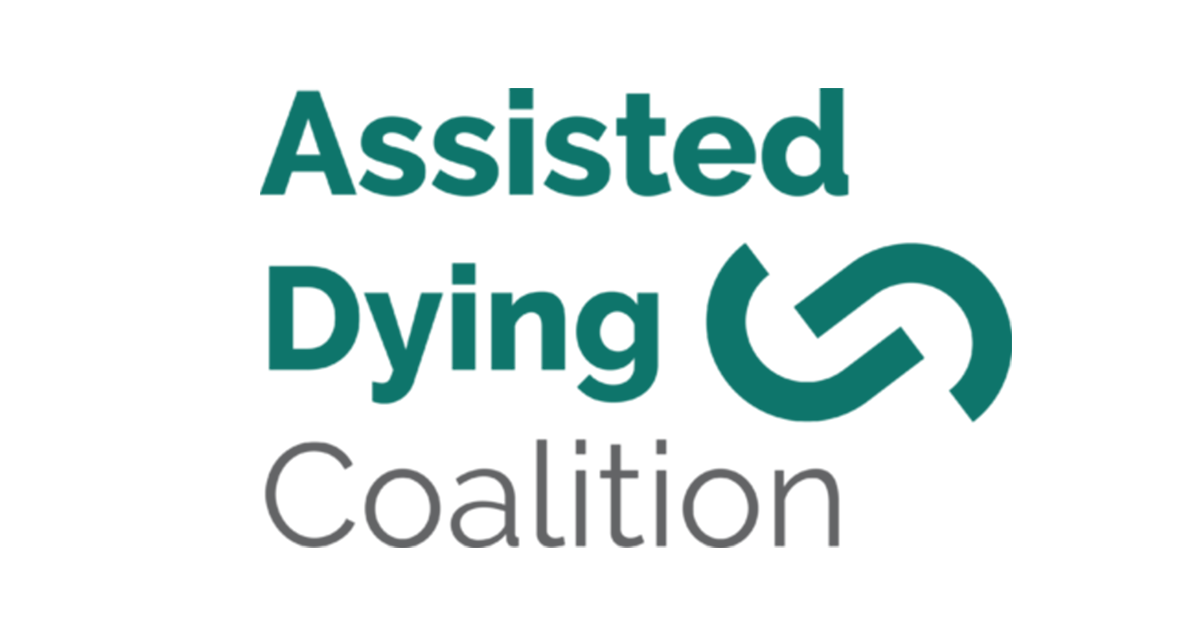
There are several organisations in the UK that advocate for a compassionate assisted dying law. Most are part of the Assisted Dying Coalition, which we co-founded. There have also been several attempts to change the law, in the form of private members’ bills. None of these organisations or past bills advocate for people under the age of 18 to be eligible for an assisted death. Nor do they ever advocate for people who suffer from mental health conditions, not physical conditions, to be eligible. A petition to include mental health in the Scottish Assisted Dying Bill garnered only 40 signatures.
It is entirely fair for politicians to ask questions about mental health and age criteria, but this conversation that focuses on the fringes of the debate took up too much time from the oral evidence sessions.
There were twelve questions posed by committee members on assisted dying for mental health criteria. MP James Morris posed seven questions which mentioned mental health and capacity. Questions related to children were asked five times.
Even in jurisdictions where assisted deaths are legal for people under the age of 18 or for people suffering from mental health conditions, assisted deaths for these groups are incredibly rare. In 2020, 2021, and 2022 there were no assisted deaths for minors in Belgium.
The emphasis on palliative care detracted from evidence from the rest of the health and social care profession

There was clearly an overwhelming focus on palliative care for this inquiry. While palliative care is relevant, this took up too much oxygen. In the final session, involving Helen Whately MP, Minister of State at the Department of Health and Social Care, and Professor Stephen Powis, National Medical Director at NHS England, it was 31 minutes into a 40-minute session before the first question pertaining to assisted dying was asked.
As already mentioned, palliative care doctors were invited to give oral evidence, while not a single other practising healthcare professional was. The first item of the terms of reference was ‘To what extent do people in England and Wales have access to good palliative care? How can palliative care be improved, and would such improvements negate some of the arguments for assisted dying/assisted suicide?’
This means that most written evidence tackled this question first, before outlining why the assisted dying debate is happening in the first place.
Outside of healthcare, psychologists, social workers, disabled people, terminally ill people, people suffering from incurable diseases and families, and friends and loved ones of people who have died painful deaths are all important stakeholders in this inquiry. Not enough weight was given to these other groups.
A lack of UK-based evidence
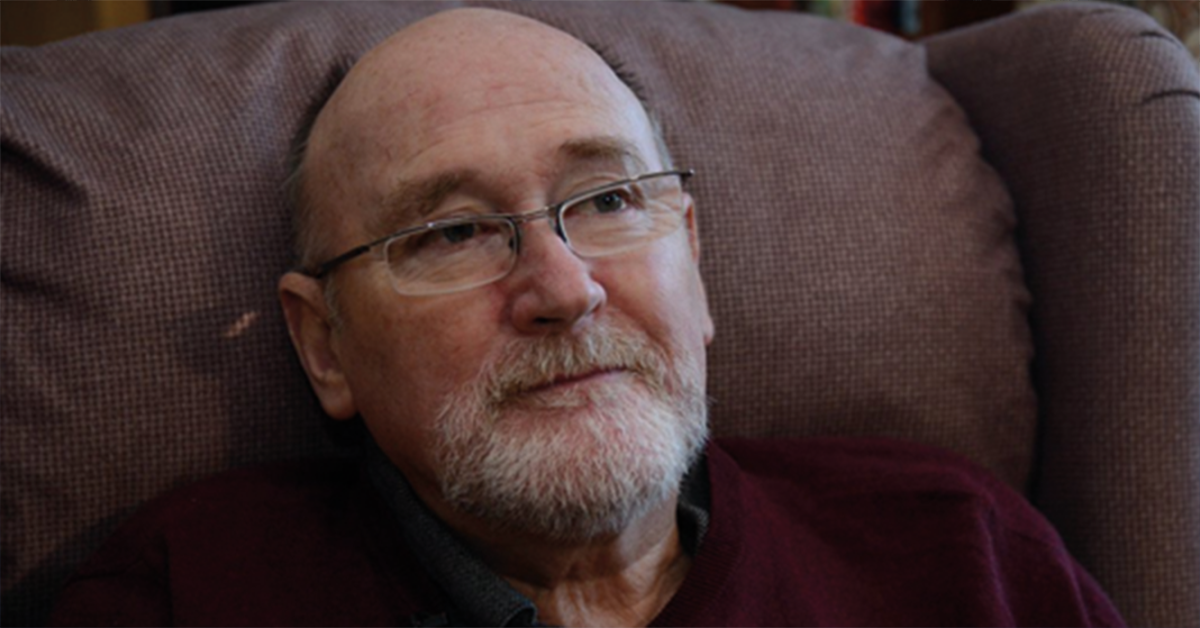
The committee did not adequately probe case studies of Motor Neurone Disease and Huntington’s. As mentioned, it is great that the Committee took in large amounts of international evidence: as numerous jurisdictions have had assisted dying legislation for over two decades, there is ample international evidence.
However, there have been several important studies into the pain, suffering, and indignity that exist in the UK today. Firstly, a study by the Office of National Statistics found that diagnosis of a serious health condition is associated with an elevated rate of death due to suicide. Even more strikingly, the study found that patients with Huntington’s and Motor Neurone Disease were considerably more likely to die by suicide. It’s clear that with the lack of any assisted dying law, people in the UK are taking end-of-life decisions into their own hands.
Another major study, by the Office of Health Economics, found that even if they received the best possible palliative medicine, at least 6,000 per year would die without any effective pain relief in their final month. A report by Dignity in Dying showed that 17 people a day die in pain.
These two major studies received little attention during the inquiry, yet are a vital part of the picture, showing the need for an assisted dying inquiry here in the UK.
Anecdotes were left unchallenged
There were several moments in the inquiry where anecdotal evidence and unsupported assertions were left unchallenged or uncorrected.
Professor Lydia Dugdale, Director of Centre for Clinical Medical Ethics in the US, alleged that people had been forced into euthanasia in Canada for poverty or by pressure from their children. Paul Blomfield MP challenged Dugdale to produce evidence of these claims, yet to date, no corrections or additional evidence has been published by the Committee. Dr Matthew Doré, Honorary Secretary of the Association for Palliative Medicine, repeated these claims in the subsequent session and was left unchallenged.
Professor Downar told the Committee ‘A number of cases in Canada have been misrepresented. It is important to set the record straight on some of these.’
Humanists UK produced a report on how many of the cases in Canada are being misreported. A recent IPSOS poll confirmed that 84% of Canadians support their assisted dying legislation.
An inadequate survey
There were also technical issues with the survey that was carried out at the start of the inquiry. Firstly, the first question in the survey stated:
‘Suicide and attempted suicide are not crimes in England and Wales. However, it is a crime for a person to encourage or assist the suicide of another person. Euthanasia (healthcare professionals administering lethal drugs) is also illegal.
Which of the statements below best reflects your view?
- I broadly agree with the law on this issue in England and Wales
- I broadly disagree with the law on this issue in England and Wales
- I’m not sure’
The wording of this question is quite unclear – a person could read this as being asked to agree/disagree with the idea that suicide is not a crime. Secondly, a person could agree that encouraging the suicide of a person, especially for selfish motives, should remain illegal, while assisting someone who is incurably suffering, under strict criteria, should not be illegal. So how is someone who supports assisted dying meant to answer?
Secondly, the survey included no identifiers, such as names, email addresses, or addresses. This means that individuals from abroad could respond, and individuals could respond multiple times. We know this is an issue, the Scottish consultation on its Assisted Dying Bill in September 2021 received 3,352 responses, all on the same day, from the same organisational email address with near-identical responses, organised by the anti-abortion lobby group ‘Right to Life’.
Right to Life organised the same campaign for this survey, even pre-filling the responses. When responding to the survey, users were asked to select factors they found the most important when considering the issue. Right to Life did not ask individuals to choose the ‘Sanctity of life’ option of the survey – clearly hiding their main religious motivation.
Conclusion
The evidence submitted to the assisted dying inquiry shouldn’t be ignored. There is a tremendous amount of evidence that was submitted by a huge range of experts, both at home and abroad. We now have decades of experience internationally to draw upon and 27 jurisdictions to look towards. The existence of an inquiry alone has helped to move this vital debate forward.
Yet there are enough issues that we’ve identified that need to be addressed. At the very start of the inquiry in January, David Gauke, the former Justice Secretary, expressed concern about the makeup of the Committee. He wrote in an article for the New Statesman ‘The composition of the committee makes it very unlikely that it will recommend reform’.
Considering this may be one of the most important ethical issues of our generation, it could be considered unjust if the makeup of the Committee prevents it from coming to genuine, evidence-based conclusions.
Notes:
For further comment or information, media should contact Humanists UK Assisted Dying Campaigner Nathan Stilwell at press@humanists.uk or phone 07456200033.
Read about the inquiry’s session on Switzerland.
Read about the inquiry’s session on Belgium, the Netherlands, and Canada.
Read about the inquiry’s session on Australia, New Zealand, and America.
Read more about a decade of campaigning for the legal right to die – at home and abroad.
Read the ONS study on suicides among people diagnosed with severe health conditions.
Read more about our campaign to legalise assisted dying in the UK.
Humanists UK is the national charity working on behalf of non-religious people. Powered by 100,000 members and supporters, we advance free thinking and promote humanism to create a tolerant society where rational thinking and kindness prevail. We provide ceremonies, pastoral care, education, and support services benefitting over a million people every year and our campaigns advance humanist thinking on ethical issues, human rights, and equal treatment for all.


